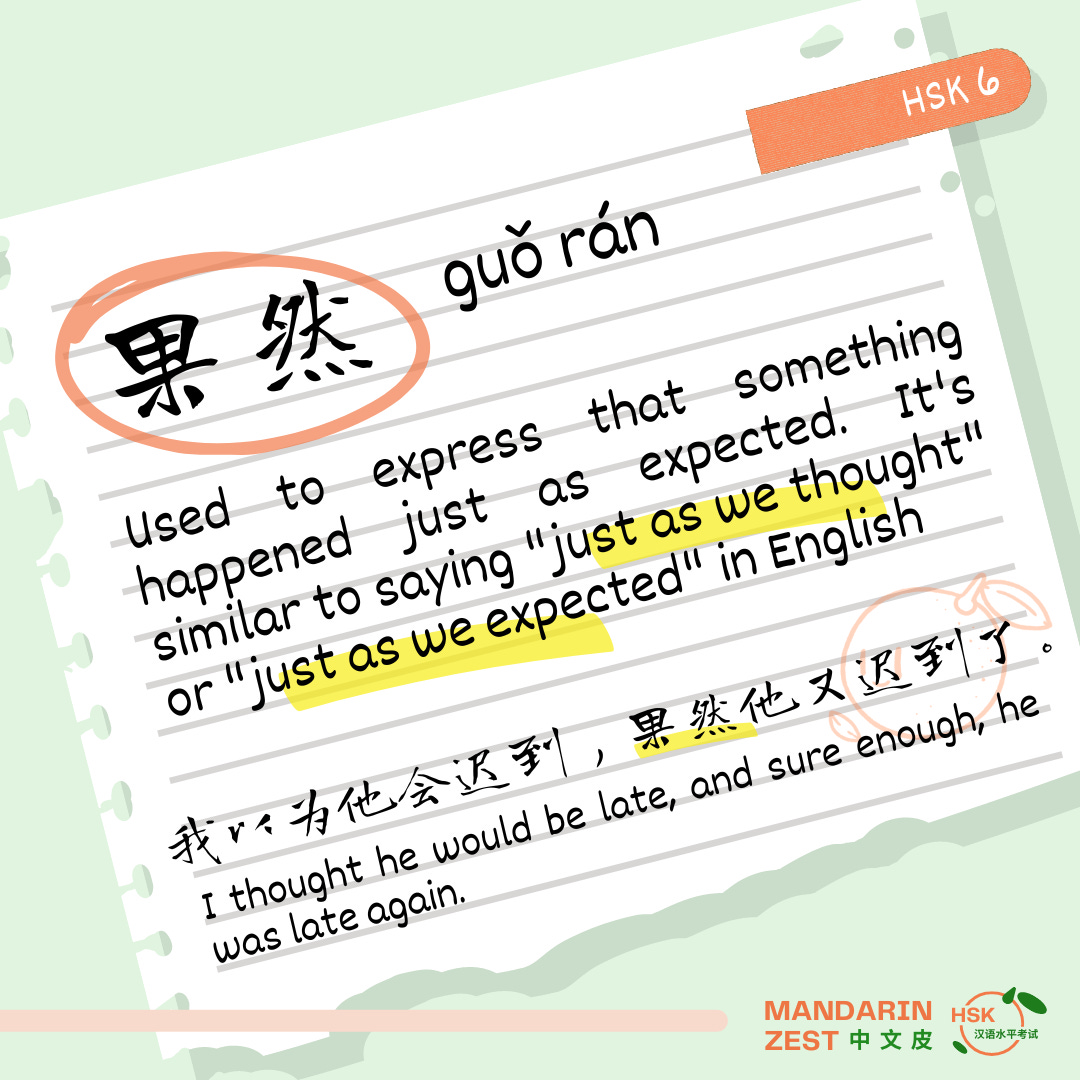You can use the adverb 果然 (guǒrán) to express that something happened just as expected. It's similar to saying "just as we thought" or "just as we expected" in English, but it's a single word in Chinese! For example, 我以为他会迟到,果然他又迟到了。("I thought he would be late, and sure enough, he was late again.").
It has the opposite meaning of 竟然 (jìngrán) or 居然 (jūrán), which are used for unexpected situations.
Sample Sentences
我猜他会忘记带书,果然他没带。(I guessed he would forget his book, and sure enough, he didn’t bring it.)
他平时很努力学习,果然这次考试又得了高分。(He usually studies very hard, and as expected, he got a high score on this exam.)
我觉得他会拒绝邀请,果然他没有来。(I had a feeling he would decline the invitation, and just as I thought, he didn’t come.)
In a Text
今天我和朋友约好了去一家很有名的餐厅吃饭。大家都说那里的菜特别好吃,所以我充满了期待。到了餐厅,我们点了几道推荐的菜,果然没有让我失望。每一道菜都非常美味,尤其是他们的招牌烤鸭,外脆里嫩,味道刚刚好。我朋友之前也说过这家餐厅服务很好,果然服务员都很热情又专业,让我们整个用餐体验更加愉快。看来这家餐厅的名气果然是有道理的,下次我一定还会再来!
招牌 (zhāopái): signature dish; signboard
脆 (cuì): crispy
嫩 (nèn): tender
名气 (míngqì): reputation; fame
Today, my friends and I planned to eat at a very famous restaurant. Everyone said the food there is really delicious, so I was full of anticipation. When we arrived and ordered a few recommended dishes, it truly didn’t disappoint. Every dish was amazing, especially their signature roast duck, crispy on the outside and tender inside, with just the right flavor. My friend had also mentioned that the service at this restaurant is great, and sure enough, the staff were friendly and professional, making our dining experience even better. It seems the restaurant's reputation is well-deserved, and I’ll definitely come back next time!





